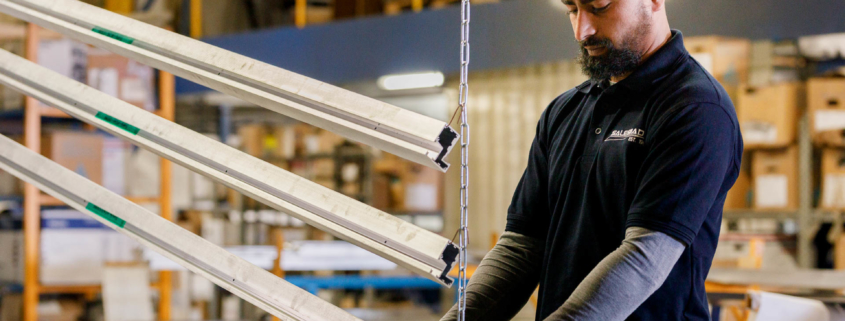Are Car Parts Made From Aluminium?
Are Car Parts Made From Aluminium?
Have you ever given a second thought to the materials your car or van is constructed from? Maybe you opted for leather or fabric seats, but what about the body, frame and what’s under the bonnet? Taking inspiration from this month’s British Motor Show, our August article asks, ‘Are car parts made from aluminium?’
Classic Cars to Electric Vehicles
If you exhibit at or visit this year’s British Motor Show in Farnborough you will see a vast collection of vehicles. There are also stunt drivers, driving experiences and information on automotive careers. It’s a great day for motorheads and there is plenty to keep the whole family entertained.
When it comes to cars, are you drawn to iconic cars from a bygone era, sports cars and the latest electric models? Each has a distinct look and it isn’t just the style that defines them. They are also made from different materials.
Classic British Cars
The body and chassis of Classic British cars are usually formed from steel. That’s because this metal is widely available, strong and durable. It is relatively low cost, easy to fabricate and is proven to be effective at absorbing vibrations and impact. Therefore, it is little wonder that steel was the material of choice for Henry Ford when he started mass-producing vehicles.
Sports Cars
In contrast to a production line of popular road vehicles, no expense is spared in creating sports cars. Top-end models are typically made from gel-coated carbon fibre. This is an incredibly lightweight material that is moulded to the smooth lines that aid aerodynamics, so it enhances speed. It’s incredibly strong, rigid and durable. However, these specialist cars are often built by hand at great cost. Therefore, it’s not a viable option for mass production.
Electric Vehicles
Many modern cars, including electric vehicles, are manufactured from aluminium. That’s because aluminium is lighter than steel and has a higher strength-to-weight ratio. This has helped to extend the range and capacity of battery power. It also boosts fuel efficiency in hybrid and petrol vehicles. In addition, it is considerably cheaper to manufacture cars from aluminium than carbon fibre. Therefore, you could say it is the ideal solution!
Why is Aluminium Used in Cars?
As well as fuel economy, there are further advantages to lightweight and strong vehicles. Replacing steel with aluminium has been proven to enhance handling, increase the durability of the car and lower emissions. This final point is especially significant as 22% of cars produced this year need to emit zero emissions. This rises to 33% in 2026 and continues to grow in incremental stages. The aim is to achieve the target of all new cars emitting no CO2 from the tailpipe by 2035.
You may be surprised to hear that aluminium has performed better than steel in crash performance tests. It’s a misconception that heavier metals offer better protection. On impact, the energy absorption of aluminium has proven to be twice that of steel. That makes it a safer option. What’s more, aluminium does not corrode. As a result, modern cars aren’t affected by rust that is often found on older models.
Finally, aluminium parts are made from recycled metal and are fully recyclable. So, in a drive for circular design and sustainability in the motor industry, these green credentials are in favour.
Which Car Parts Are Made From Aluminium?
Many car parts can be manufactured from sheet or extruded aluminium. These include the frame, chassis, windscreen frame and body panels. In addition, the suspension system and housing for transmission are often aluminium. The versatile metal is also used as a reflector in head and rear lights, along with interior and exterior trim.
Aluminium Extrusions for Car Parts
Our specialism is designing, fabricating, finishing and assembling parts made from extruded aluminium. We have designed bespoke profiles for automotive companies which add strength and practical detailing to frames and trim. A good example is our design, manufacture and finish of replacement rear windscreen frames for a leading 4×4 vehicle.
Involving us at the concept stage is advantageous, as our expertise can inform design solutions and the most suitable aluminium alloy. Alloys in the 5000 & 6000 series are widely used for auto components. As an example, 5052 might be selected for a frame, while 6463 is a good option for aesthetic, high-shine trim.
From the profile design, through to assembly and finishes, we have the facilities, equipment and expert team to manage the process in-house. So, if you are a car manufacturer who needs aluminium parts, contact us on 01296 431292 or sales@salesmade.co.uk. From prototypes to full production, we can meet your requirements.

